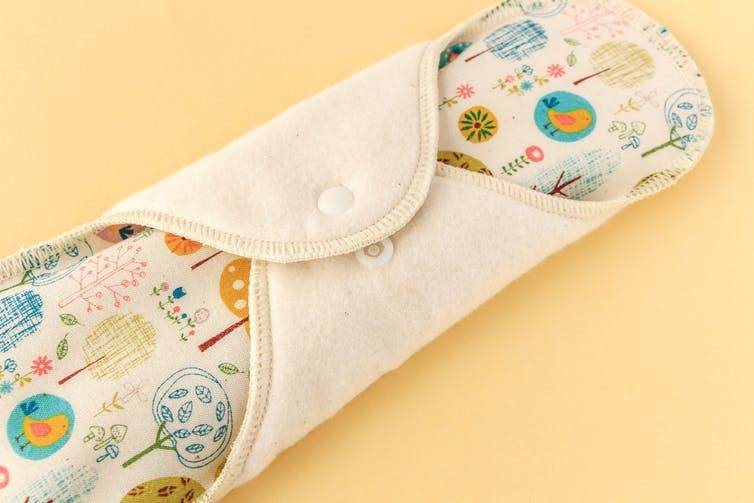Reusable pads are dangerous, so avoid them, says a health advocate on Menstrual Hygiene Day.
The use of reusable pads by females, particularly young girls, during menstruation is unsanitary and dangerous, according to a health advocate.
The National Coordinator of the International Network of Religious Leaders Living with or personally affected by HIV and AIDS (INERELA+ Ghana), Mrs. Mercy Acquah-Hayford, who raised the concerns, noted that reusable pads could infect the user.
As a result, she warned young girls against using it.
She issued the warning in an interview with the Ghana News Agency during a menstrual health awareness program for some John Wesley Methodist School students in Accra.
The program, which was organized by INERELA+ Ghana, aimed to educate children, particularly young girls, on how to manage their menstrual life in a more hygienic manner.
It was part of activities to commemorate this year's Menstrual Hygiene Day, and was funded by the United Nations Women Trust Fund.
The United Nations International Children's Emergency Fund (UNICEF) estimates that 1.8 billion people menstruate every month around the world.
According to UNICEF, millions of girls, women, transgender men and women, and non-binary people are unable to manage their menstrual cycle in a dignified and healthy way.
The situation has been attributed to, among other things, these people's inability to obtain sanitary products due to poverty.
As a result, some health professionals and organizations, including non-profit health organizations, have recently advocated for the use of reusable pads due to their affordability.
Mrs. Acquah-Hayford pointed out that this was counterproductive to the goal of promoting a healthy menstrual cycle.
"I'm not trying to ruin anyone's business, but we used to do reusable pads, and as health professionals, we noticed that people were coming in with infections and other problems, so we advocated for single-use pads."
"Are we now advising people to use reusable items?" How do they get portable water to wash it, especially if they are schoolchildren? Even in boarding schools, some do not have running water, so how will she wash it?" She inquired.
"Again, seeing a lot of blood on the pad, you said the person should wash it," Mrs. Acquah-Hayford continued. Isn't this reinfecting the system?
"So, let's go back to the drawing board and take a look at it again." That is my viewpoint."
Mrs. Acquah-Hayford, a retired health officer, urged health officials to develop policies to ensure young girls' safety during their menstrual periods.
"I'm not sure if the Family Health Unit is aware of this, but if they are, they need to come up with policies that will allow people to use it safely," she said.
She urged the government to subsidize sanitary pads in order to make them more affordable and encourage good menstrual hygiene.
"I believe that the cost of pads should be reduced, and that the government should intervene and lower prices." Mrs. Acquah-Hayford stated, "Pads should be affordable for everyone to buy."
Madam Paulina Essel, a counselor and resource person, advised the young women to put their education first in order to have a better future.
She walked the students through how to use and dispose of sanitary pads properly.
All of the girls and teachers were given sanitary pads to keep in their first aid kits by INERELA+ Ghana.
The Menstrual Hygiene Day was established in 2014 to raise awareness about the issues faced by those who do not have access to sanitary products. It is observed on May 28 every year.



No comments yet
Be the first to share your thoughts!